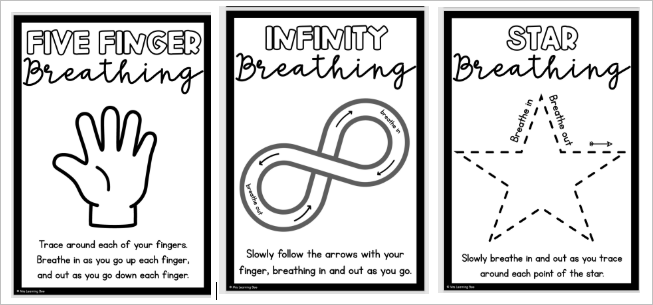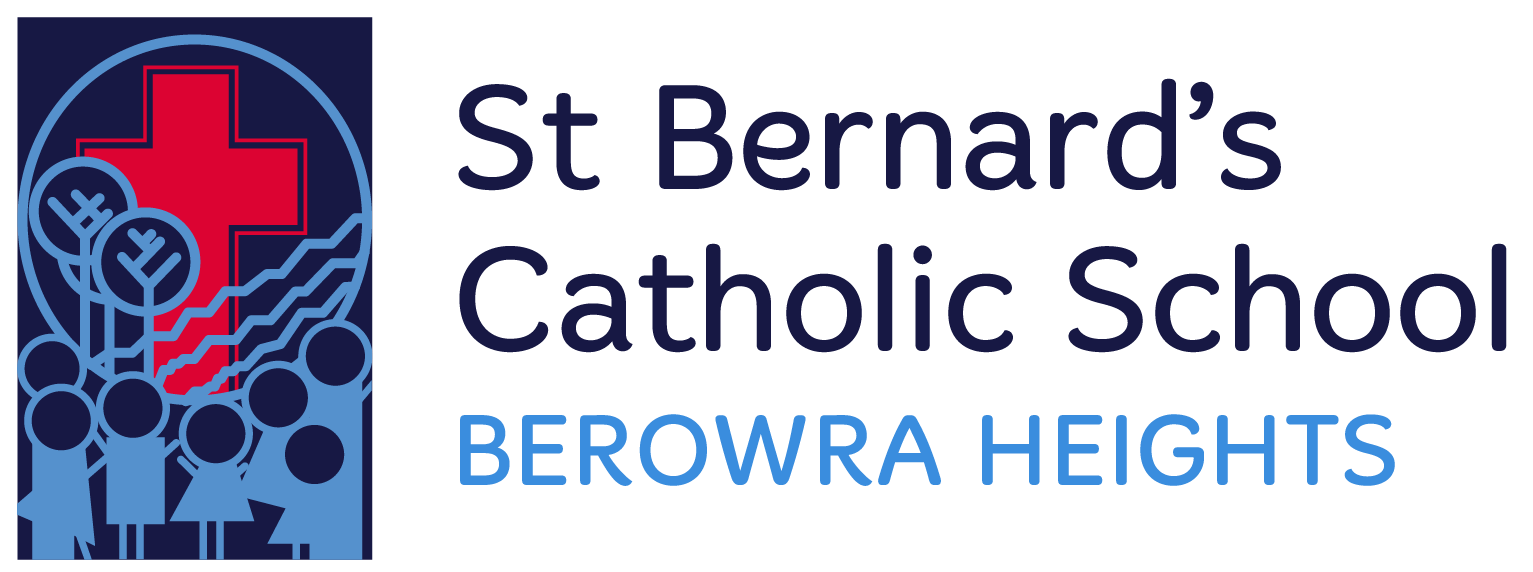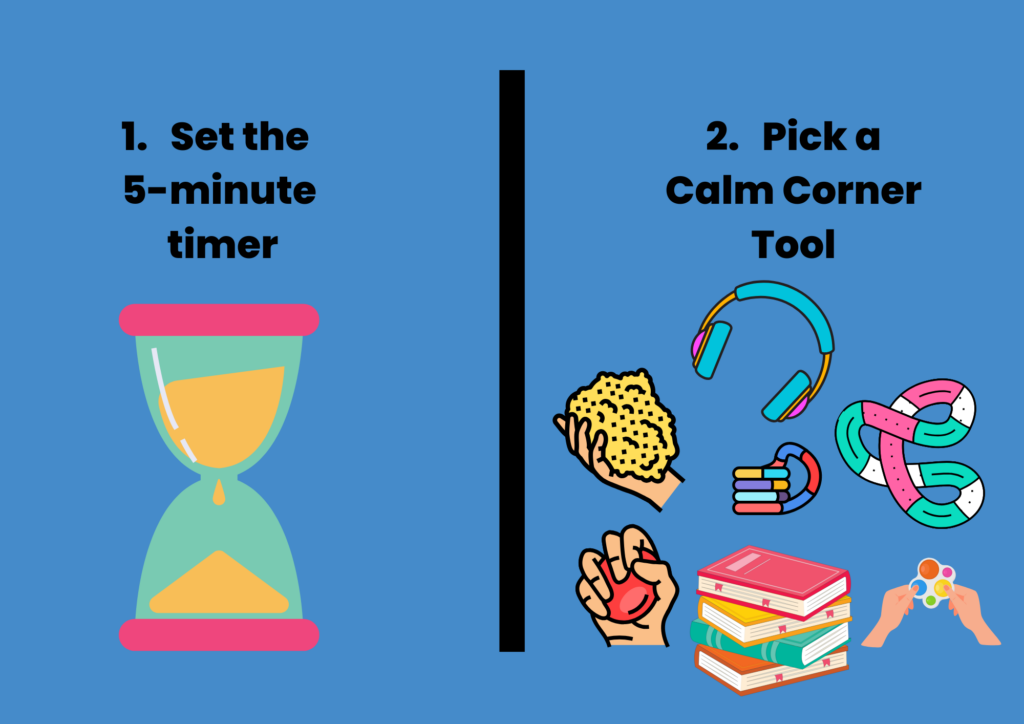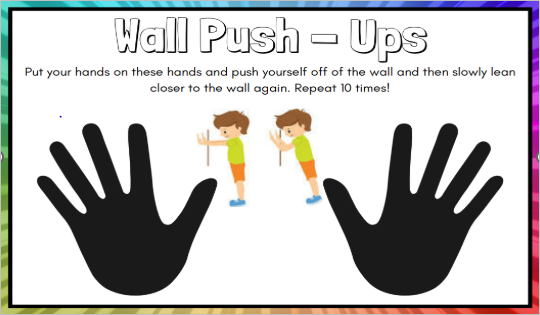Strategies to support students’ ‘Self-Regulation’
Students have opportunities through the day to support their wellbeing and ability to self-regulate. These include:
- using our calm corner in each classroom
- using the sensory walks around school
- movement breaks
Example of calm corner posters:
The importance of calm corners in classrooms:
Calm corners are dedicated areas within classrooms designed to help students self-regulate, manage stress, and refocus on their learning. These spaces play a significant role in fostering positive behaviours for learning and creating an inclusive, supportive environment. Below are key reasons highlighting their importance:
Calm corners provide students with a safe space to process and manage strong emotions, such as frustration, anxiety, or anger, without disrupting others. By teaching self-regulation strategies, such as deep breathing or mindfulness, this area empowers students to regain control and return to their tasks in a more focused and calm state.
Incorporating calm corners into classrooms acknowledges the importance of mental health. Providing a space for students to decompress normalises the idea that it is okay to take breaks when feeling overwhelmed, reducing long-term stress and promoting overall well-being.
Calm corners convey that the classroom is a supportive environment where students’ emotional needs are valued. This enhances their sense of safety, belonging, and connection to the school, which is foundational for effective learning.
Calm corners are not just a physical space but a proactive strategy for supporting positive behaviours and emotional well-being in the classroom. They help students learn and thrive by addressing emotional needs, creating an inclusive environment, and fostering a culture of care and mutual respect.
Second Step
The Second Step Program is a research-based social-emotional learning (SEL) curriculum designed to help students develop essential skills for success in school and life. It focuses on building a positive, supportive learning environment by teaching skills that promote self-regulation, emotional understanding, empathy, and positive decision-making.
Key Features of the Second Step Program
Social-Emotional Skills Development
Students are taught to identify and manage their emotions, develop empathy for others, and learn how to solve problems effectively. These skills lay the foundation for positive relationships and a strong sense of well-being.
Focus on Positive Behaviours
Second Step helps students build skills to make good choices, resolve conflicts peacefully, and engage in behaviours that foster a safe and respectful school environment.
Evidence-Based Approach
The program is backed by decades of research and has been proven to improve classroom climate, reduce problem behaviours, and increase academic success.
Family Involvement
Second Step encourages family engagement by providing resources to reinforce social-emotional skills at home, fostering strong connections between school and home.
Integrated Approach to Bullying Prevention
Along with teaching SEL skills, Second Step includes components to help students recognize, respond to, and prevent bullying, promoting kindness and inclusion.
Benefits of the Second Step Program
- Promotes self-awareness and self-regulation in students.
- Fosters empathy and understanding of others’ feelings.
- Enhances problem-solving and decision-making skills.
- Encourages respectful relationships and a sense of belonging.
- Reduces disruptive behaviours and supports a positive classroom climate.
- Prepares students to thrive academically, socially, and emotionally.
Why Second Step?
At St Bernard’s, we are committed to supporting our students’ overall well-being, helping them grow into confident, compassionate, and responsible individuals. The Second Step Program aligns with our goal to provide a safe, respectful, and nurturing learning environment where all students can succeed.
URSTRONG
The URSTRONG Program is a globally recognised friendship and social-emotional learning (SEL) program that empowers children with the skills, language, and tools they need to build healthy, positive friendships. It focuses on fostering strong, respectful relationships while helping students navigate challenges like conflict and exclusion in a constructive and confident way.
What is URSTRONG?
URSTRONG provides children, parents, and educators with practical strategies to:
- Build resilient friendships based on kindness and respect.
- Learn how to manage conflict effectively.
- Develop confidence to handle challenging social situations.
This program supports students’ emotional well-being by giving them the tools to connect with others, communicate effectively, and strengthen their friendships.
Key Components of the URSTRONG Program
Friendship Skills
Students learn essential friendship skills, such as recognising healthy vs. unhealthy friendships, setting boundaries, and understanding how to build trust and respect in relationships.
Language of Friendship
URSTRONG teaches children a common “language of friendship,” equipping them with positive and constructive vocabulary to express their emotions, resolve conflicts, and strengthen connections.
Conflict Resolution
The program teaches children how to “Talk it Out” when conflicts arise and provides step-by-step tools to resolve disagreements in a healthy, proactive way.
Inclusive Approach
URSTRONG emphasises kindness, inclusion, and empathy to ensure all students feel valued, seen, and supported within their peer groups.
Parent and Teacher Resources For Parents | URSTRONG
URSTRONG provides resources, workshops, and training to help parents and educators support children as they build strong, healthy friendships both in and out of school.
Why URSTRONG at St Bernard’s?
At St Bernard’s, we believe that friendships are essential for students’ happiness and success at school. By implementing the URSTRONG Program, we are equipping students with life-long relationship skills that will help them thrive socially and emotionally.
Through this program, we aim to create a culture where all students feel connected, supported, and confident in their friendships.



